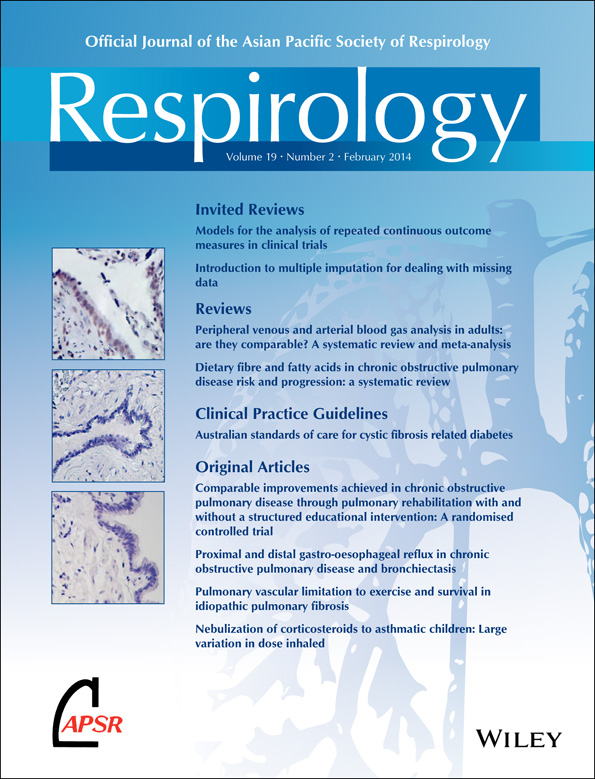Mammalian target of rapamycin (mTOR) inhibition does not prevent lung adenocarcinoma-induced malignant pleural effusion
Conflict of Interest Statement
Dr Ioannis Kalomenidis, as group leader, has received research funding from Wyheth Hellas SA for this and other projects.
Abstract
The impact of temsirolimus was investigated in a murine model of malignant pleural effusion (MPE) created with intrapleural injection of Lewis Lung Cancer (LLC) cells. Temsirolimus (1 or 20 mg/kg) did not affect the pleural fluid volume or the number of pleural tumour foci. In addition, temsirolimus did not affect vascular endothelial growth factor expression by LLC cells in vitro. In conclusion, temsirolimus did not curtail experimental lung-adenocarcinoma-induced MPE.




